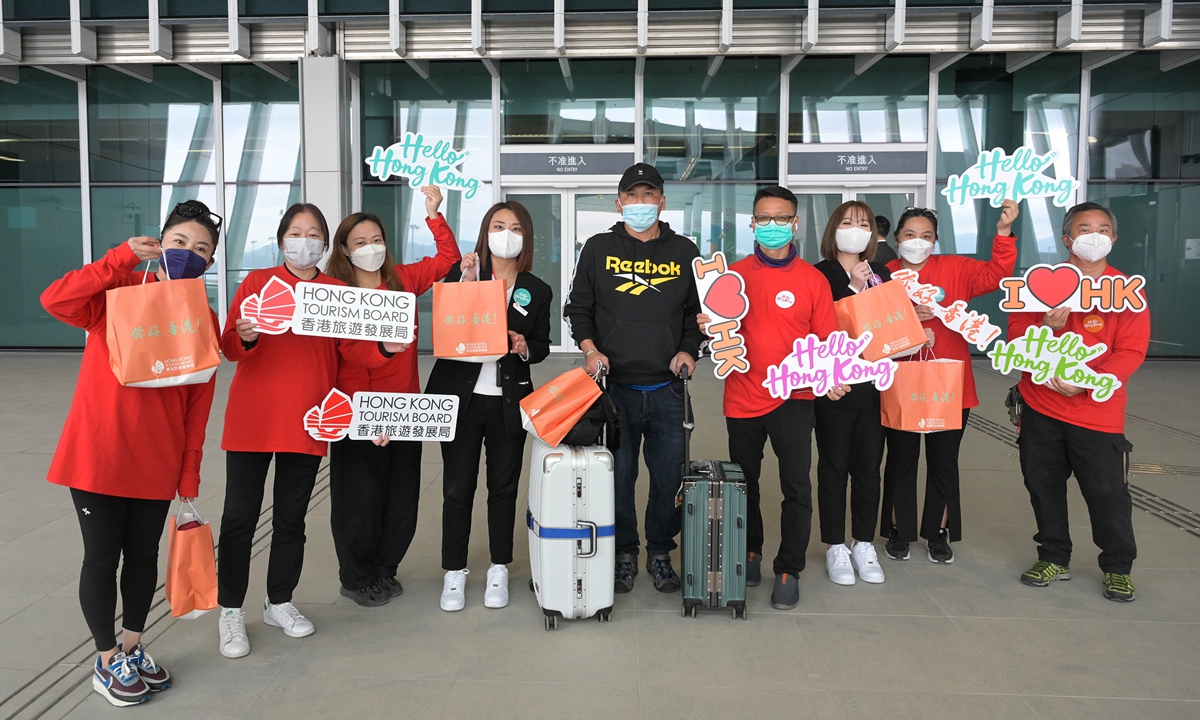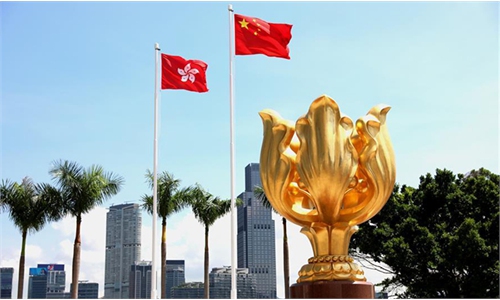NPC deputy from HK calls on issuing medical visa for applicants from Chinese mainland

The first cross-border travelers receive presents from the Hong Kong Tourism Board at Heung Yuen Wai Control Point on February 6, 2023, the first day of full reopening of the borders between the Chinese mainland and Hong Kong. Photo: VCG
The Government of Hong Kong Special Administrative Region (HKSAR) should consider issuing medical visas for people from the Chinese mainland seeking treatment in Hong Kong, a deputy to the National People's Congress from Hong Kong proposed at this year's two sessions.
Rising demand for medical services has been observed among mainland residents in Hong Kong, especially the needs for receiving vaccinations, major operations and treatments of intractable diseases, according to the proposal of Dennis Lam Shun-chiu that obtained by the Global Times.
Renowned for its excellent medical professionals, internationally recognized clinical testing techniques, a sound regulatory system, Hong Kong should take the initiative to boost its "medical tourism" which in turn would contribute to the city's economy, said Lam, who is also an ophthalmologist founded C-Mer Eye Care Holdings.
The proposal suggests that medical visas would allow the holder to make multiple trips between the Chinese mainland and Hong Kong within a certain period time, either three months or a year. The visa would allow visa holders to visit Hong Kong accompanied by another person, Lam wrote in the proposal.
Medical green channels can be set up at immigration and customs to facilitate their visit as the program evolves, Lam noted.
Prior to the border closure during the COVID-19 pandemic, mainland patients in some private hospitals in Hong Kong accounted for about 10 percent of the overall visits, and in some it was as high as 20 percent, Lam told the Global Times.
Private hospitals are mainly the destinations of mainland residents going to Hong Kong for medical treatment, so it means the opening of medical visas would not increase pressure on Hong Kong's public medical system, Lam said.
Other auxiliary services can be arranged together with the visa, Lam suggested, including opening official website which outlines how people from the Chinese mainland may better access medical treatment in Hong Kong, and allowing private clinics establish online platforms to make appointments.
Likewise, residents from Hong Kong are in need of more diversified options to access medical services on the mainland as more are being employed, starting businesses and spending retirement in the Greater Bay Area, Lam said.
Lam said the Greater Bay Area should establish more comprehensive public hospitals similar to that of University of Hong Kong - Shenzhen (HKU-SZ) Hospital, which is a major hospital serving Hong Kong residents living in the Greater Bay Area and a designated medical institution that eligible Hong Kong seniors to access using health care vouchers to pay for outpatient services.
"The University of Hong Kong - Shenzhen (HKU-SZ) Hospital is exemplary in this regard but the Greater Bay Area is huge and an individual hospital cannot cover current needs," Lam noted. He also suggested establishing more private hospitals in the region through public and private partnerships (PPP) so as to offer better medical services for Hong Kong residents living in the Greater Bay Area.
More than 550,000 people from Hong Kong are resident in the Greater Bay Area, according to statistical data published by the Hong Kong SAR government in 2022.



